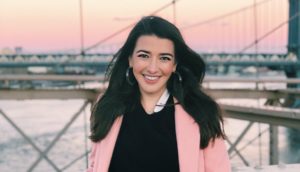Applications for the 2024 fellowship period have now closed. We expect to open applications for the 2025 fellowship by late September, 2024.
Every year, The Open Notebook offers a paid, part-time fellowship program for early-career science journalists. During the course of this fellowship, fellows work with a mentor to plan, report, and write articles for publication at The Open Notebook and become part of the TON editorial team. This ten-month program offers fellows the opportunity to explore their career interests and passions and to sharpen their skills as part of a talented, supportive, diverse community of past and present fellows and mentors. This fellowship is made possible through the generous support of the Burroughs Wellcome Fund, which has supported this program since 2012.
Key Details
Length of Fellowship: 10 months (part time)
Fellowship Period: March 11–January 11
Location: Remote
Stipend: $6,000
Deadline: October 31
The Fellowship Experience
During this fellowship, each fellow will pitch, report, and write four articles for publication at The Open Notebook—a mix of “story behind the story” interviews and reported features. They will have weekly phone or video meetings with a mentor who is an experienced science journalist and who will help them shape story ideas, provide reporting and writing guidance, edit fellows’ article drafts, and offer general craft and career-development advice and guidance.
Typically, fellows’ articles go through several rounds of substantive editing. As each article nears completion, fellows are also responsible for annotating their articles for fact-checking and for collecting demographic data about their sources as part of our ongoing source-diversity tracking effort.
Fellows and mentors also take part in a Slack discussion group composed of other current and former fellowship participants and TON editors. During the fellowship, fellows will be responsible for participating in cohort-based activities in the fellowship Slack community. Membership in this community will continue after the fellowship ends.
Please Note: Although it is part-time, this fellowship requires a significant weekly time commitment, and juggling the fellowship along with a full-time job can be challenging. Prospective fellows who have full-time jobs are welcome to apply, but should consider carefully whether they will be able to devote sufficient time to completing articles as specified in the fellowship description. This includes making time for 1) conducting phone or video interviews with sources, 2) weekly meetings with mentors, 3) multiple rounds of editing and revision for most stories, 4) participating in conversations in the fellowship Slack community.
The fellowship period is March 11—January 11. We are flexible about making schedule changes after fellowships begin to accommodate major professional and life events.
Eligibility
The fellowship is open to early-career science journalists with fewer than three years of regular professional science writing experience. Please note the following details:
- Internships and student work do not count toward this requirement.
- Exceptions to this requirement may be made for cases in which an applicant has more than three years of professional science writing experience but some or all of that experience is not in English.
- Some training and/or experience in writing for the general public is a requirement for this fellowship.
- International applicants are welcome. However, applications, including writing samples and letters of recommendation, must be in English. Materials translated into English from another language are acceptable.
Selection Criteria
Priority will be given to applicants who demonstrate:- A strong intention to work primarily as a professional science journalist. (Note: This fellowship is intended for people whose main goal is to do journalism, as opposed to other forms of science communication.)
- Some training and/or experience writing about science for the general public (it does not have to be extensive)
- Some understanding of the science journalism profession, the challenges science journalists commonly face, and the ways in which you would like to grow as a science journalist
- Familiarity with The Open Notebook and the types of topics we tend to cover
- An ability to generate good story ideas suitable for The Open Notebook
- Strong writing ability
- If English is not your first language, we do take this into consideration and do not expect flawless writing. However, for a successful experience in this fellowship you must have a fairly high level of proficiency in English.
Required Application Materials
The application form for this fellowship includes the following:- Responses to questions about:
- Why you are interested in this fellowship and what you hope to learn
- Your prior training and/or experience in writing stories about science for the general public
- Any particular skills, interests, or perspectives that you would bring to this fellowship
- Your overall plans for during the fellowship period (for example, will you simultaneously be finishing a dissertation? Freelancing? Seeking full-time employment somewhere? Doing something else?)
- Short proposals for two TON features or multimedia stories that you think would be suitable for publication at The Open Notebook. These can take the form of behind-the-story writer interviews; reported features on some element of the craft of science writing; roundtable discussions; or some other creative, feature-length project centered on the craft of science writing. (These are not full-scale pitches.)
- A resume or CV
- One letter of reference. This can be from a professor, editor, mentor, supervisor, or other colleague—whoever you think can best speak to your skills and qualities as they relate to science journalism and to this fellowship experience.
- Up to two writing or multimedia samples of work aimed at the general public (not scientific/academic writing). If you are sharing audio or multimedia clips, you can simply put the URLs for the work into a PDF to upload in this section. (Samples must be in English. Translated materials are acceptable.)
- Optional: Additional information about you. We strongly encourage writers from all types of backgrounds to apply. If you are a member of any group or community that has historically been marginalized or underrepresented in U.S. journalism, we invite you to let us know. This is entirely optional, and any information you disclose will be kept confidential
Applications for the 2024 fellowship period have now closed. We expect to open applications for the 2025 fellowship by late September, 2024.
Questions?
If you have any questions, please email TON editor-in-chief Siri Carpenter: siricarpenter@theopennotebook.com.
Past and Current Early-Career Fellows
| Fellow | Year | Mentor(s) |
| Tina Casagrand | 2014 | Kendall Powell |
| Tiên Nguyễn | 2014 | Alexandra Witze |
| Geoffrey Giller | 2015 | April Reese |
| Julia Rosen | 2015 | Cameron Walker |
| Jane C. Hu | 2016 | Stephen Ornes |
| Christina Selby | 2016 | Jill Adams |
| Rodrigo Pérez Ortega | 2017 | Helen Fields and April Reese |
| Rachel Zamzow | 2017 | Laura Beil |
| Olga Kreimer | 2018 | Hillary Rosner |
| Aneri Pattani | 2018 | Azeen Ghorayshi |
| Jennifer Lu | 2019 | Maya L. Kapoor |
| Knvul Sheikh | 2019 | Roxanne Khamsi |
| Shira Feder | 2020 | Cynthia Graber |
| Katherine J. Wu | 2020 | Torie Bosch |
| Pedro Márquez-Zacarías | 2021 | Sarah Zhang |
| María Paula Rubiano A. | 2021 | Brooke Jarvis |
| Abdullahi Tsanni | 2021 | Chrissie Giles |
| Carolyn Wilke | 2021 | Roberta Kwok |
| Celia Ford | 2022 | Sabrina Imbler |
| Shi En Kim | 2022 | Sarah Gilman |
| Pratik Pawar | 2022 | Nidhi Subbaraman and Stephanie M. Lee |
| Humberto Basilio | 2023 | Amy Maxmen |
| Darren Incorvaia | 2023 | Madeline Ostrander |
| Giuliana Viglione | 2023 | Sarah Gilman |
| Kate Fishman | 2024 | Sarah Gilman |
| Emma Gometz | 2024 | Kristen Ozelli |
| Claudia López Lloreda | 2024 | Bill Andrews |
Stories by Our Fellows
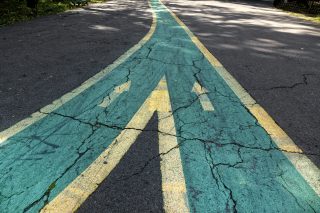
Sharing Is Caring: How to Co-byline a Story
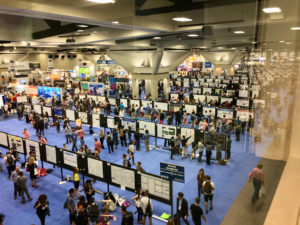
Getting the Most out of Scientific Conferences

How to Be (or Not to Be) an Advocacy Journalist


Going Digital: Inside New Science Journalism Outlets

Do You Need a Science Degree to Be a Science Reporter?

What to Expect When You’re Expecting as a Freelancer
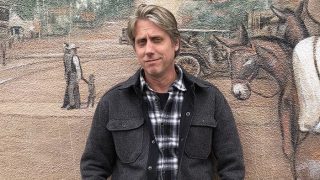
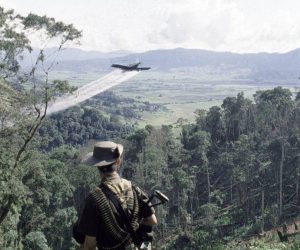
Covering Environmental Health When Science Is Lacking

Don’t Despair: How to Handle Writer’s Block


Finding and Landing the Right Internship in Science Writing
